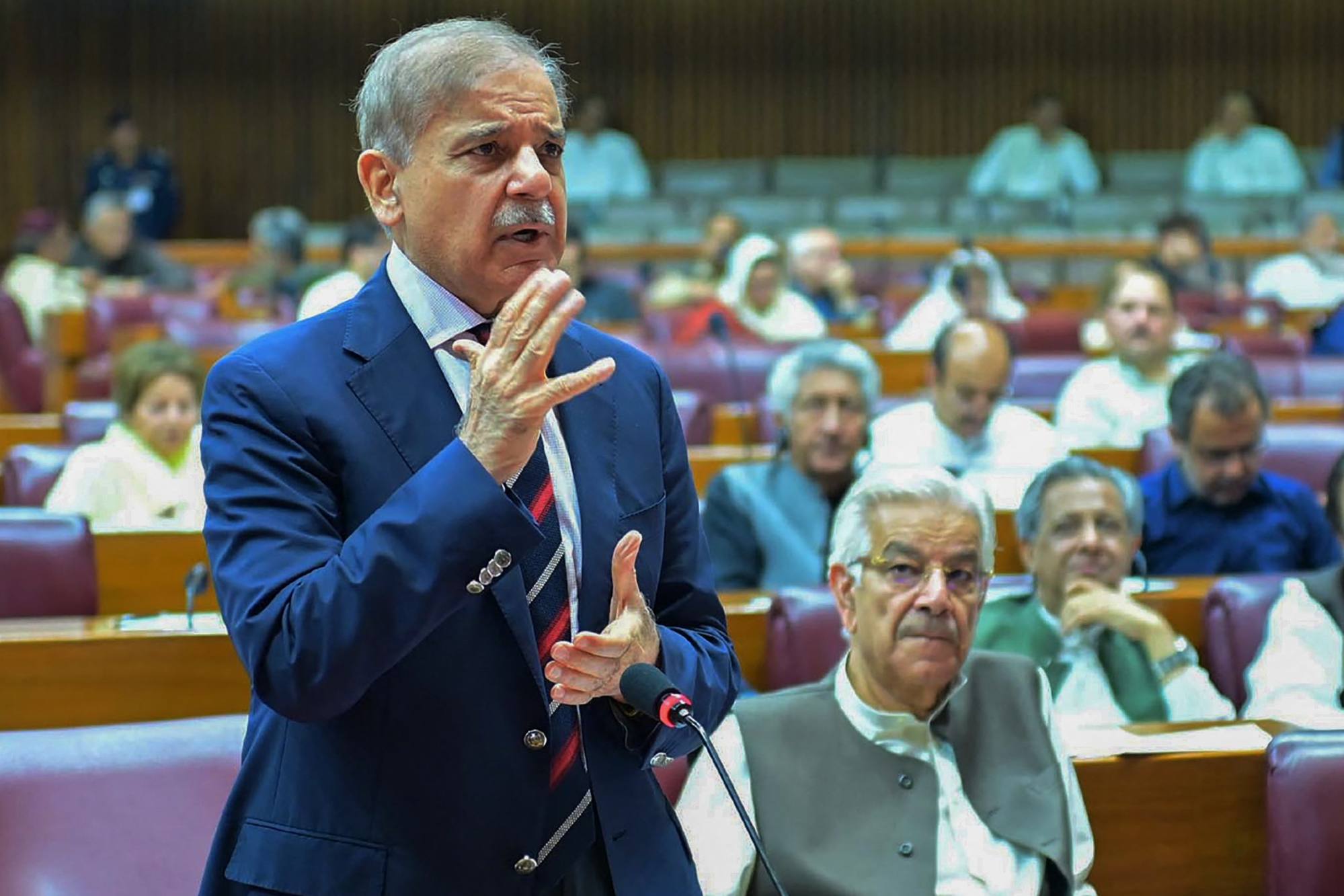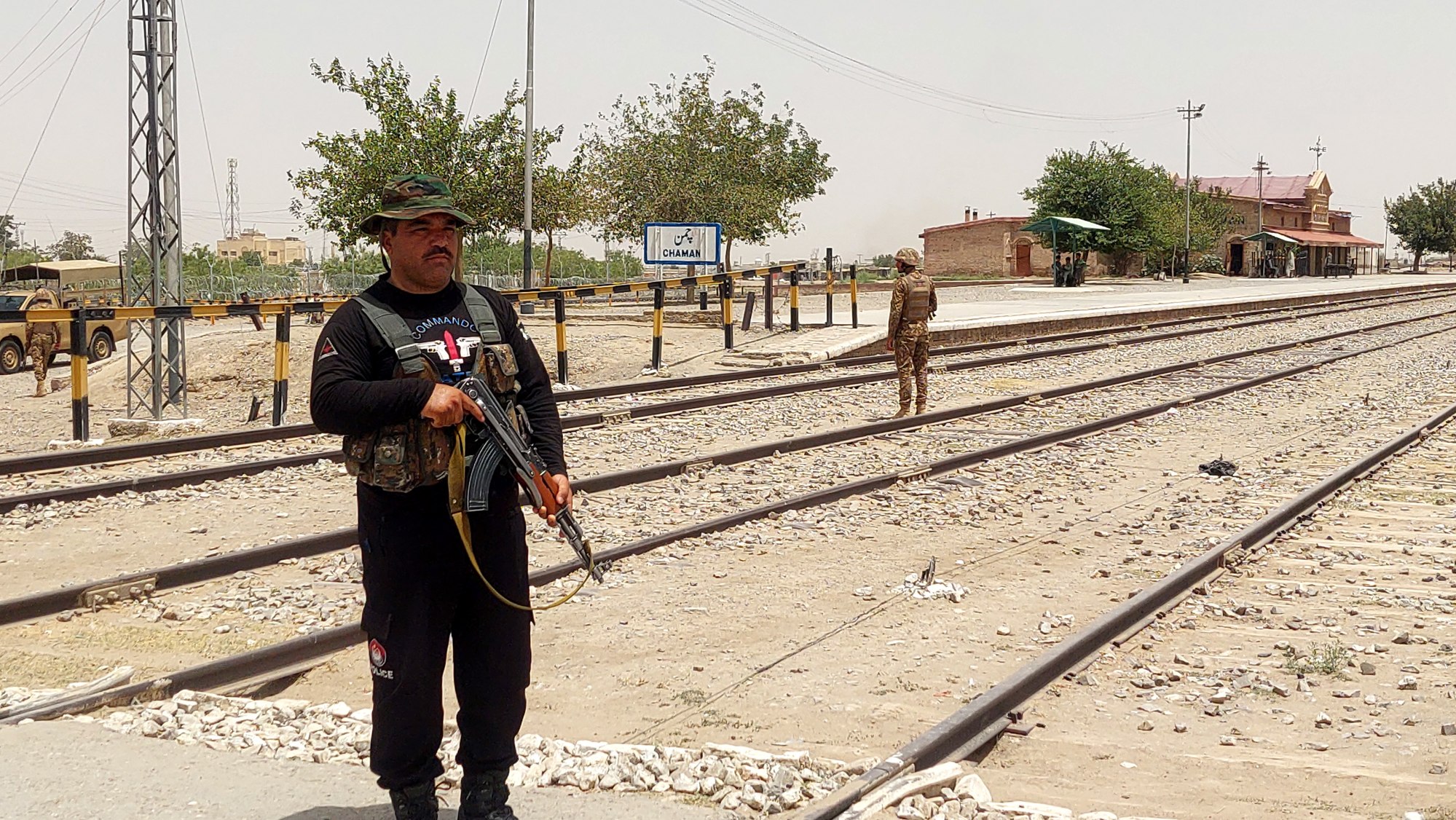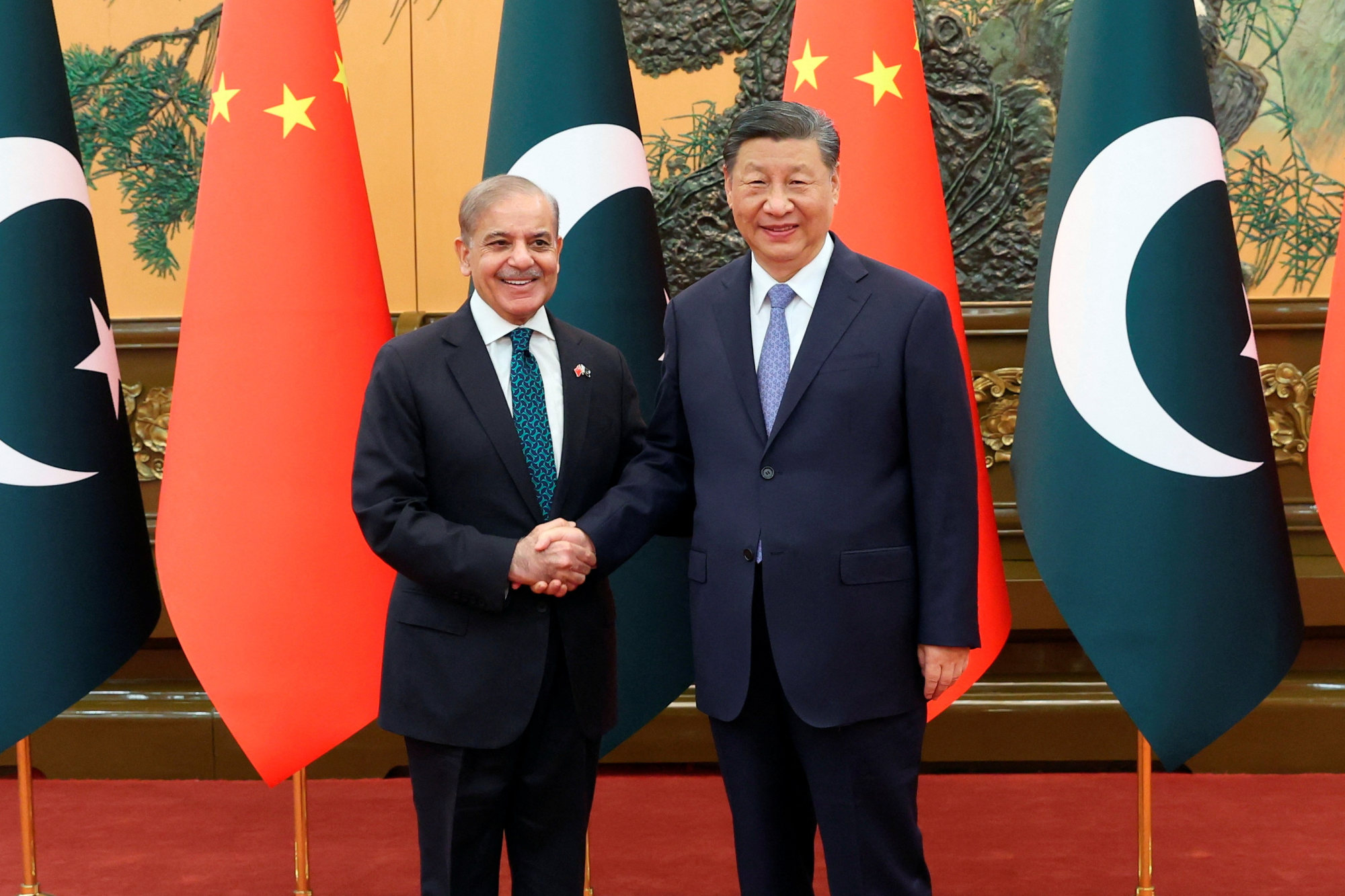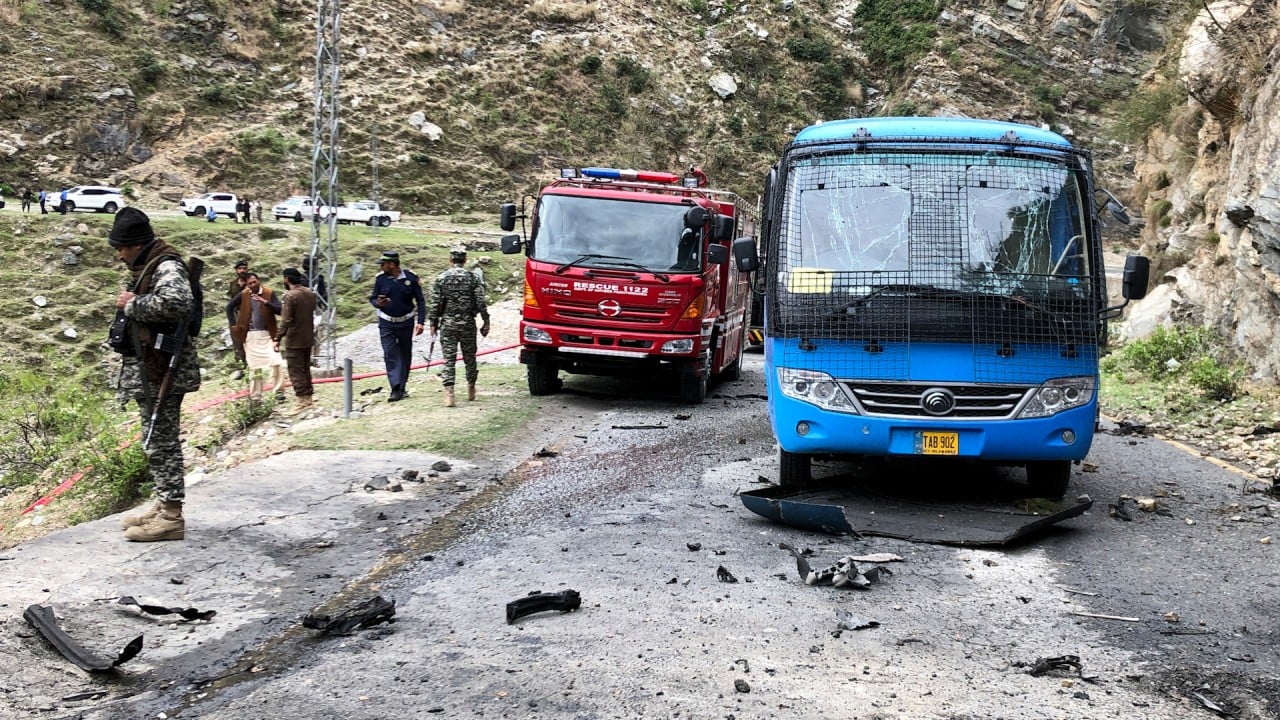
This Week inAsia Politics
After China’s warning, Pakistan threatens Afghanistan-based TTP with drone strikes
-
-
China’s warning that further investment hinges on an improved security situation likely acted as a catalyst, analysts say
Published: 6:00pm, 7 Jul 2024
Pakistan is gearing up for a new chapter in its shadow war with Taliban insurgents, vowing a barrage of retaliatory air strikes across the border into Afghanistan.
Stung by a surge of Tehreek-i-Taliban Pakistan (TTP) attacks in recent months, Pakistan’s defence chief Khawaja Mohammed Asif has put the militant group on notice.
“We won’t serve them with cake and pastries. If attacked, we’ll attack back,” he said on Tuesday in a BBC interview, publicly acknowledging for the first time Pakistan’s responsibility for a handful of previously unclaimed drone strikes on TTP camps in Afghanistan dating back to 2021.
But before it unleashes its drones again, Islamabad must first overcome widespread public opposition to its counterterrorism campaign – especially in the border regions, which will bear the brunt of any flare-up of fighting.
Across Khyber Pakhtunkhwa (KP), locals dread being displaced en masse in a grim repeat of 2007 to 2016 – the last time the military clashed with the TTP – when tanks, artillery and warplanes reduced their homes and livelihoods to rubble.

Prime Minister Shehbaz Sharif’s office has repeatedly tried to calm fears about a devastating military operation. Sharif and Defence Minister Asif insist large-scale offensives won’t be necessary this time around. Unlike before, they claim the TTP no longer holds territory or operates “no-go zones” within Pakistan.
Instead, officials say the counterterrorism push will centre on a surge in targeted, intelligence-driven operations. They’ve sought to assure political parties and the public that their concerns about a destructive campaign are unfounded.
But politicians based in KP have ridiculed the claims. Maulana Fazlur Rehman, leader of the country’s largest religious party Jamiat Ulema-i-Islam, pointed out last week that even police in southern parts of the province, far from the Afghan border, fear for their lives and have stopped working after dark.
Inland districts like Dera Ismail Khan and Bannu – both military command centres – have seen increasingly brazen TTP activity, he said, describing daytime patrols, road checkpoints, and the militant group extorting tolls from motorists in these areas.
“It’s so disappointing to see the ministers telling brazen lies in regard to the no-go areas,” said Afrasiab Khattak, a former senator from KP and senior member of the left-wing National Democratic Movement.
It’s so disappointing to see the ministers telling brazen lies in regard to the no-go areas
“Actually, the TTP, which is part and parcel of the Afghan Taliban structure on both sides of the Durand Line [Afghanistan-Pakistan border], has expanded its presence to the majority of districts” in KP, he told This Week In Asia.
The tribal districts along the Afghanistan border, as well as the southern districts including Dera Ismail Khan and the northern Dir and Swat districts, are where the “situation is the worst”, he said.
“Misleading statements by the ministers further dent the already weak credibility of the government,” Khattak said.

The abrupt, unilateral unveiling of the new military operation, dubbed Resolve for Stability, on June 22 without prior consultation was at least partly responsible for the ensuing uproar.
Opposition parties in KP and neighbouring Balochistan, which has grappled with a separate secular separatist insurgency for decades, have blamed the military-led “Establishment” for the decision. The Establishment has directly ruled Pakistan for half of its 78-year history and continues to dominate policymaking under the country’s weak “hybrid” democratic system.
Former Prime Minister Imran Khan, imprisoned for corruption stemming from his feud with military leaders, had dismissed any attempt to address terrorism through “military invasions against our own people” as futile and destabilising.



